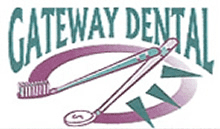Extractions
Expert Dental Extractions
Do you suspect that you have an infected tooth? Come to Gateway Dental and visit with one of our expert dentists. We will evaluate the tooth in question and determine the next treatment steps. In some infected tooth cases, it is necessary to have the tooth extracted. In Colleyville, TX, we provide dental tooth extractions to relieve you of the pain and potential risks that come with an infected tooth. This procedure is an important dental operation that can prevent further damage to your oral health. If you are experiencing excessive tooth pain, you may have an infected tooth. Call our office today to be seen by our dental team, and we will help relieve you of the discomfort that you are experiencing.

What Is a Tooth Extraction?
A tooth extraction is a procedure where a damaged, decayed, or infected tooth is removed from its socket in the jawbone. Our dental team performs this procedure under local anesthesia. Most of the time, we will recommend a tooth extraction if a tooth is causing pain, is infected, or is impacted. An impacted tooth is when a tooth does not grow out of the gum properly. This happens when there is a lack of space in the mouth or an obstruction of some kind that prevents the tooth from growing out of the gum. Our dental team provides tooth extractions to our patients to relieve pain, prevent the spread of infection, or make room for orthodontic treatments. Extractions are a cost-effective alternative option to attempts to repair a damaged or decayed tooth.
Say Goodbye to Dental Discomfort Today
Come to our office today to see how you can say goodbye to dental discomfort. Our team works hard to provide the necessary treatments to our patients. If you are experiencing excessive tooth pain or we find that you have an infected tooth, our dentists may suggest that you have a tooth extraction performed. Dental tooth extractions at our office are easy and quick. We are experts in sedation dentistry, so we can ensure that you are comfortable and relaxed from the start of the procedure to the end. When you come to our dental office, you are in good hands. We have experts in every aspect of dentistry. No matter what dental care you need, we have got you covered. Contact us today to schedule an appointment and say good riddance to dental discomfort.
